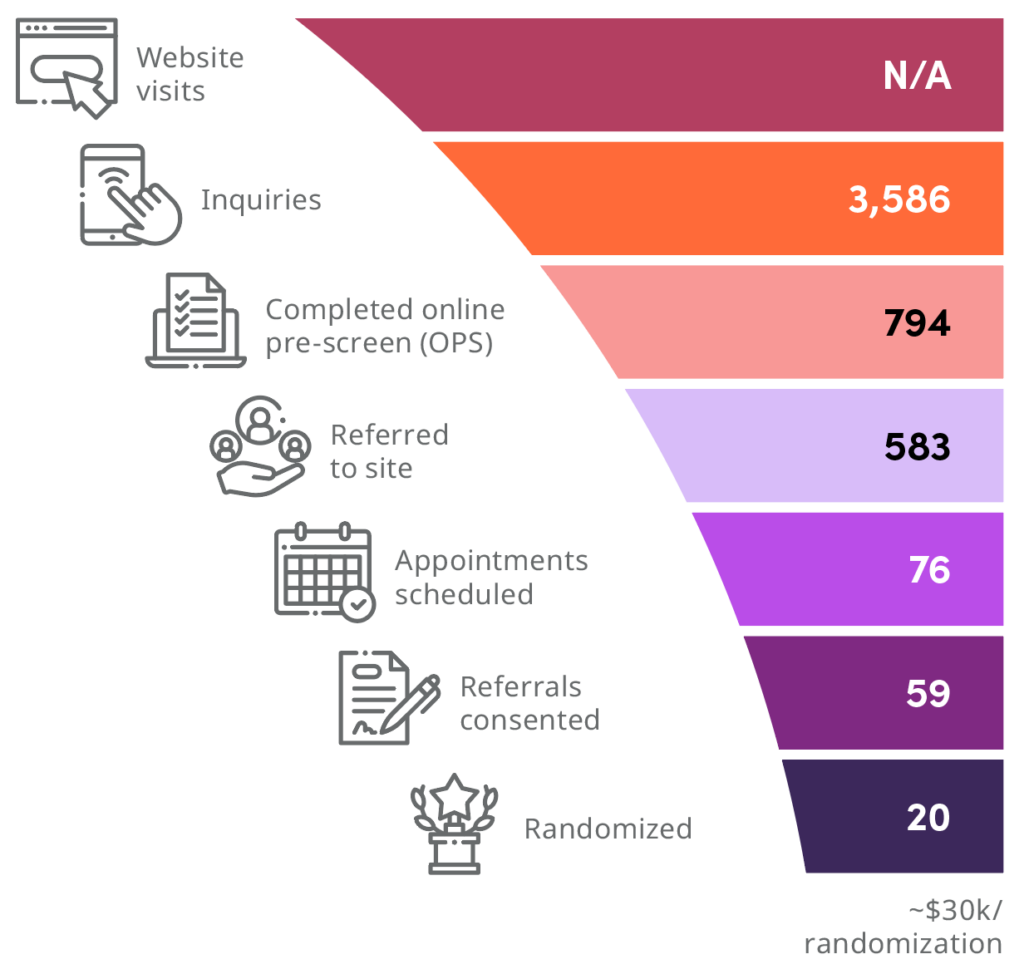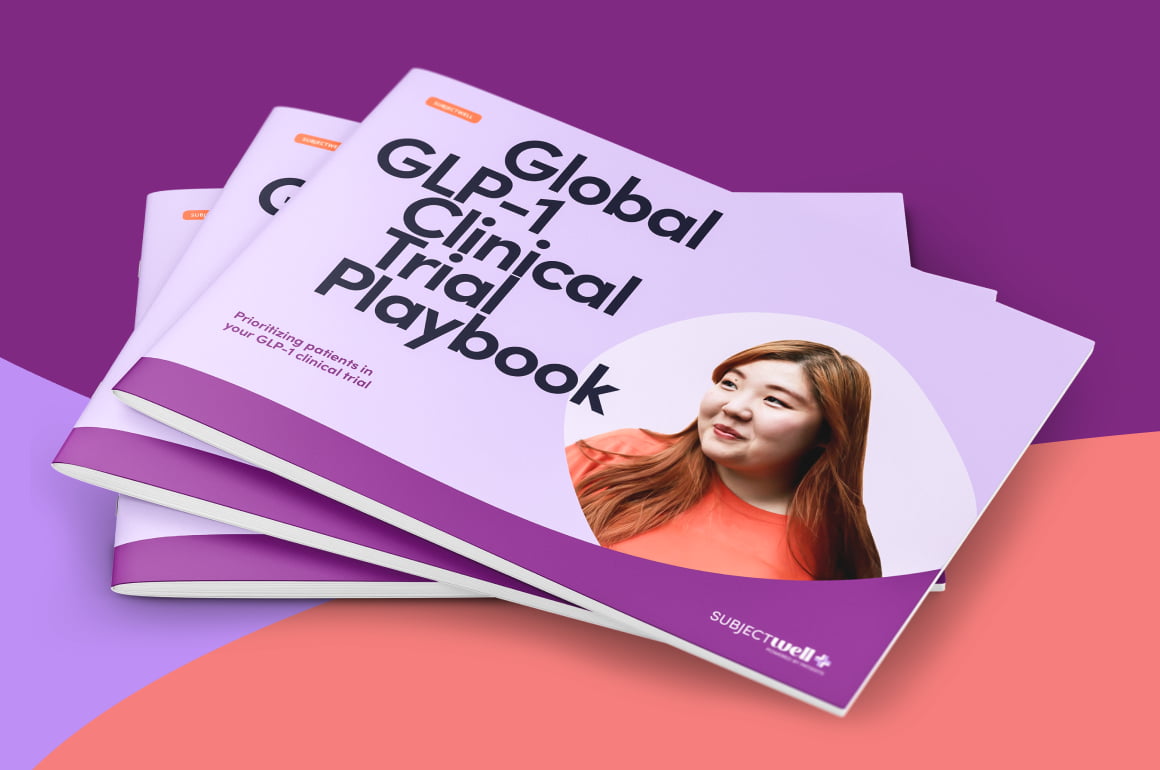Background
A Top 10 pharmaceutical company engaged SubjectWell to provide digital recruitment support for a peanut allergy study. Initially, SubjectWell managed the pre-screening website, call center operations, site management support, and provided real-time performance tracking through its OneView portal, while another international agency handled creative and media management.
Challenge
The trial’s initial recruitment efforts, led by the external agency, faced challenges with high costs and low patient conversion rates. SubjectWell was then brought in to take over the trial-specific ads, improve cost efficiency and significantly boost patient enrollment to meet the study’s recruitment goals.
Strategy
SubjectWell relaunched the campaign, managing the recruitment process end-to-end using previously created assets. Successful targeted digital outreach and sophisticated pre-screening logic lead to investigator sites being overwhelmed by the volume of referrals to follow up with and proactive, two-phased call center strategy was implemented to enhance recruitment performance.
Tactics
Age-specific pre-screening logic tailored by site
Call center utilized in two phases for patient follow-up and verification
Advanced digital marketing and optimization on social and search platforms
SubjectWell’s digital strategy cut costs by over 90% and drove 71% of all U.S. randomizations for this peanut allergy trial.
2nd phase results and funnel
By implementing precision-targeted pre-screening and refining call center workflows, SubjectWell improved referral quality, reduced site burden, and significantly elevated overall trial performance through optimized digital media strategies.

Key results
90% of US sites opted into accepting digital referrals (targeting 30-70%)
583 patients referred to sites (targeting 240 referrals to contribute 12 US randomizations)
72% of opted-in sites screened at least one patient (targeting 50-80%)
The screen failure rate (SFR) of digital referrals (59.3%) was 22.4% lower than the US average (70%) and lower than the planned SFR of 60% (targeting no more than 10-30% increase over US average)
72% of actual US randomizations came from the digital campaign (targeting 50%)
The average US recruitment rate was 17% higher (0.14) during the running of the campaign, compared to the baseline when the campaign was not running (0.12) (targeting 5-20% increase)






